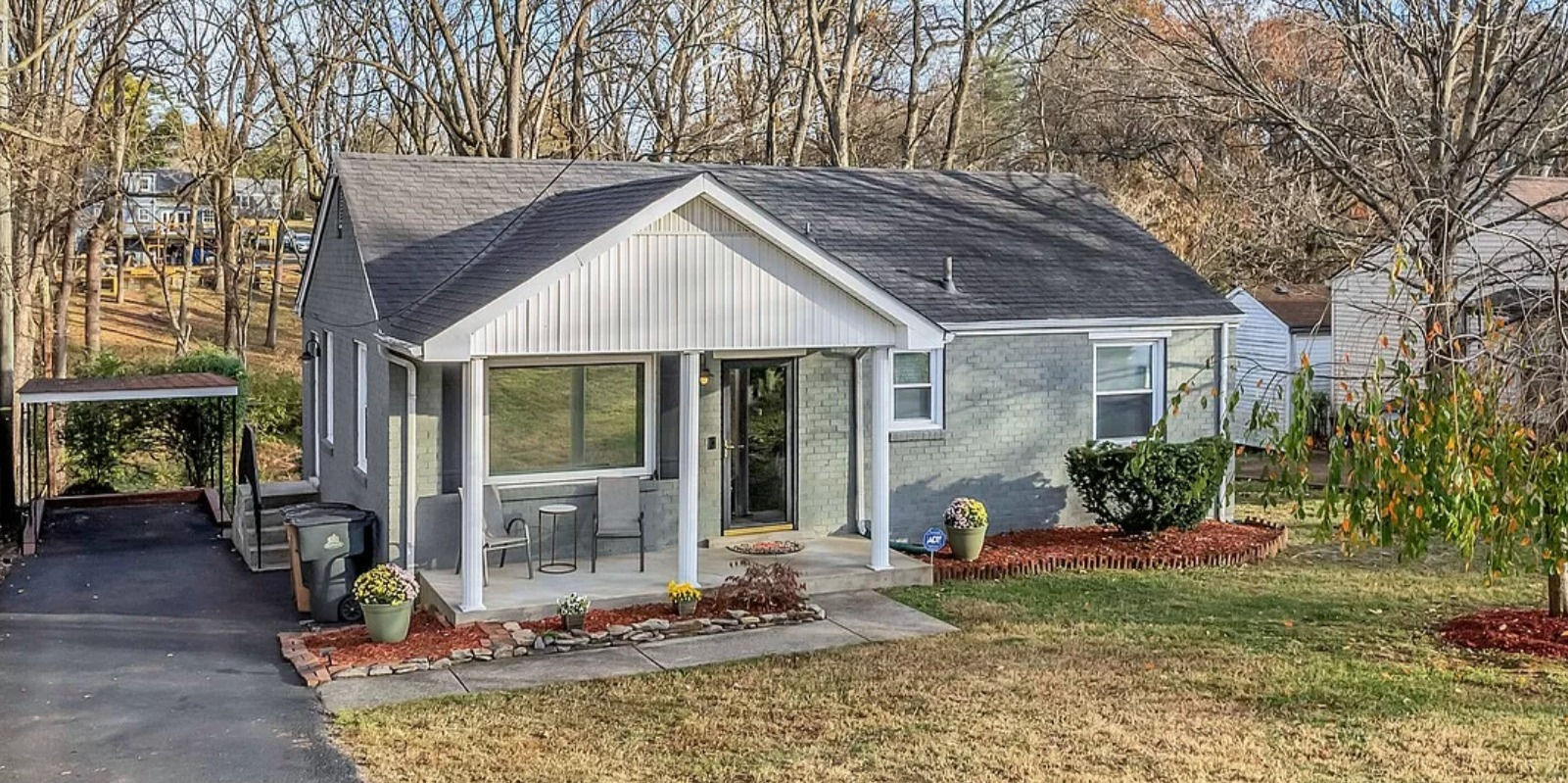Radon in The House: The Invisible Threat in Tennessee Homes
- Karson Carmichael

- Mar 26, 2024
- 3 min read
Updated: Dec 20, 2024

Radon in the house is a colorless, odorless, and tasteless radioactive gas that poses a significant health risk to homeowners. It is the second leading cause of lung cancer in the United States, after smoking, and is particularly prevalent in Tennessee due to the state's geological features. In this blog, we'll explore the dangers of radon, its presence in Tennessee homes, and how Tennessee Cash For Homes can assist homeowners in dealing with this invisible threat.
Understanding Radon
Radon is a naturally occurring gas that forms from the decay of uranium in soil, rock, and water. It can seep into homes through cracks in the foundation, walls, and floors, accumulating to dangerous levels without homeowners even realizing it. The only way to detect radon is through testing, as it cannot be seen, smelled, or tasted.
The Dangers of Radon Exposure
Exposure to high levels of radon can have serious health consequences, including:
Lung Cancer: Radon is the leading cause of lung cancer among non-smokers and the second leading cause overall. The risk of lung cancer increases with the level of radon and the duration of exposure.
Other Respiratory Issues: Although lung cancer is the most significant risk, long-term exposure to radon can also lead to other respiratory problems.
Radon in Tennessee Homes
Tennessee is known for its diverse geology, which includes regions with high concentrations of uranium. This makes certain areas of the state more susceptible to radon. The Tennessee Department of Environment and Conservation (TDEC) has identified several counties with a higher potential for elevated radon levels, including:
Knox County
Shelby County
Davidson County
Hamilton County
However, radon can be found in homes across the entire state, making it essential for all homeowners to test their properties.
Testing for Radon
The first step in protecting your family from radon is testing your home. Radon testing is simple and affordable, with two main types of tests:
Short-term tests: These tests last from 2 to 90 days and are a quick way to check for radon levels.
Long-term tests: These tests last for more than 90 days and provide a more accurate picture of the average radon level over time.
It's recommended to test every level of your home that is in contact with the ground, as radon levels can vary from one floor to another.
Mitigating Radon in Your Home
If your home tests positive for high levels of radon, there are effective mitigation strategies to reduce the gas to safer levels. These can include:
Sealing Cracks and Openings: This helps prevent radon from entering your home.
Sub-slab Depressurization: A system is installed to vent radon from beneath the foundation to the outside.
Room Pressurization: This involves using a fan to increase the air pressure in the lower levels of your home, preventing radon from entering.
How Tennessee Cash For Homes Can Help
For homeowners in Tennessee dealing with high radon levels, Tennessee Cash For Homes offers a practical solution. We understand that addressing radon issues can be costly and time-consuming. Here's how we can help:
Sell Your Home As-Is: We buy homes in any condition, including those with radon issues. This means you can sell your property without the hassle of radon mitigation.
Quick and Stress-Free Process: Our buying process is straightforward and fast, allowing you to move on from your radon-affected property without delay.
Fair Cash Offer: We provide a fair cash offer that takes into account the costs associated with radon mitigation, ensuring you get a fair deal for your home.
Navigate Radon Risks When Selling Your Home
Radon exposure is a significant health concern, especially for homeowners preparing to sell. If your home has radon issues, selling for cash could help you avoid the lengthy remediation process. Learn why this option works for homes with unique challenges in Top Reasons to Sell Your Distressed House to a Cash Home Buyer in Tennessee.
Understanding the broader market can also help you make informed decisions about selling a home with radon concerns. Check out Understanding the Tennessee Real Estate Market: Trends and Predictions to see how current trends might impact your sale. These resources offer practical steps for addressing radon risks while ensuring a successful home sale.
Conclusion
Radon is a serious concern for homeowners in Tennessee, but it's a problem that can be managed with proper testing and mitigation. If you're facing radon issues and are looking for a hassle-free way to sell your home, Tennessee Cash For Homes is here to help. Contact us today to learn more about our process and how we can assist you in dealing with the challenges of radon in your home.
References
Tennessee Department of Environment and Conservation (TDEC). (n.d.). Radon Program. Retrieved from https://www.tn.gov/environment/program-areas/opsp-policy-and-sustainable-practices/radon.html
Environmental Protection Agency (EPA). (n.d.). A Citizen's Guide to Radon. Retrieved from https://www.epa.gov/radon/citizens-guide-radon

.png)


Comments